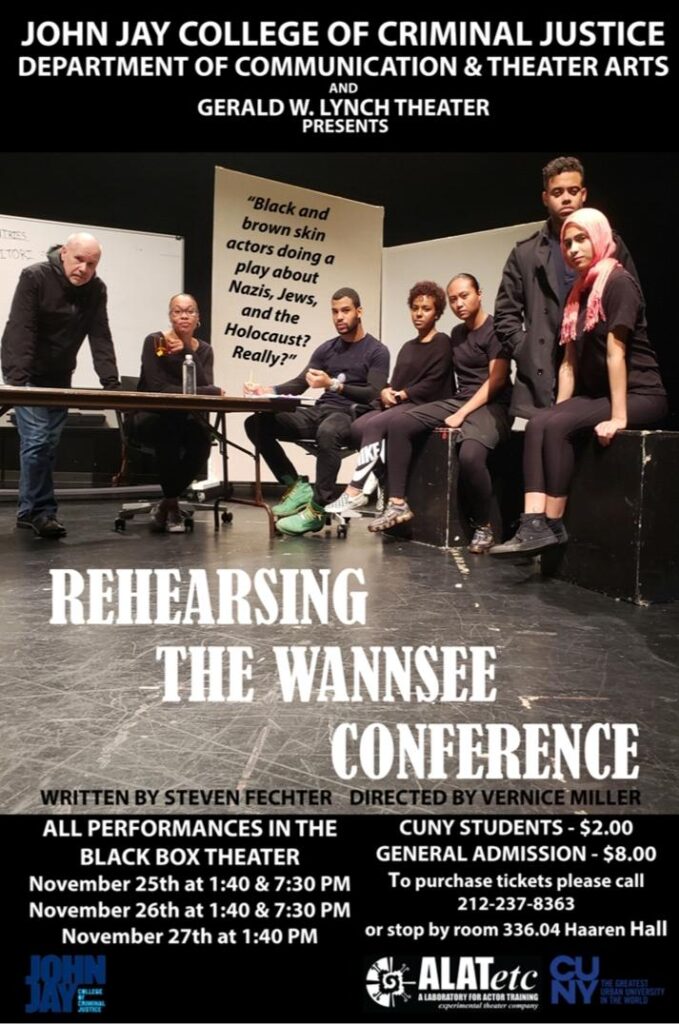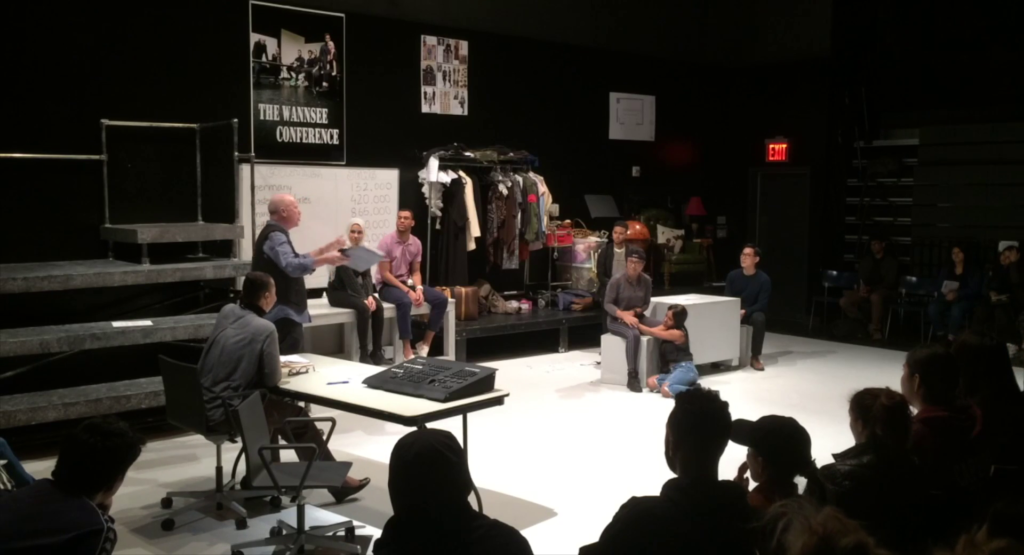PLAYWRIGHT’S NOTES
Two summers ago, at John Jay College, Professor Vernice Miller organized a reading of Rehearsing the Wannsee Conference read by a diverse group of students and young professional actors. While it was a strong reading, what was most interesting was the discussion that followed. The degree of reflection and the range of personal sharing was enlightening and moving. My hope is that in this production, and future productions, this play can be a work that stimulates a collective act of real reflection by the audience, privately, and (if there are talk-backs) publicly.
My vision for the play is that it will reach a broad and diverse audience, especially young people. This is because of the story it tells, the characters who tell it, and the questions and issues that it raises on race, racism, and human justice. The most important question may be how civilized people could contemplate, plan, organize, and set forth the annihilation of an entire race of people.
After viewing the play, I hope that audiences will awaken and talk to each other about their own thoughts of America’s dark history and the current debate regarding race and racism. Will the dialogue lead to any change in hearts and minds? Will it lead to some action to resist bigotry and injustice from wherever it comes and to fight for equality? At the least, what I hope to accomplish as a writer is that after watching my play audiences will talk about it the next day, and the day after, and become aware of their own impact on social justice through their own positive actions.
SYNOPSIS
Rehearsing the Wannsee Conference follows a college professor and six students of color rehearse a play about the Wannsee Conference. This Conference was a gathering of top Nazi leaders who met outside Berlin in early 1942 to discuss and plan the Final Solution of the Jewish Question: How to eliminate eleven million Jews in Europe. As the students rehearse, playing German Nazis and Jews, they constantly question their own feelings and each other about an event that took place 75 years ago: Why should they care? By examining and debating these past events the students’ own resentments and biases come to the surface. As they delve deeper inside the play and the characters, their understanding and empathy also deepen.


